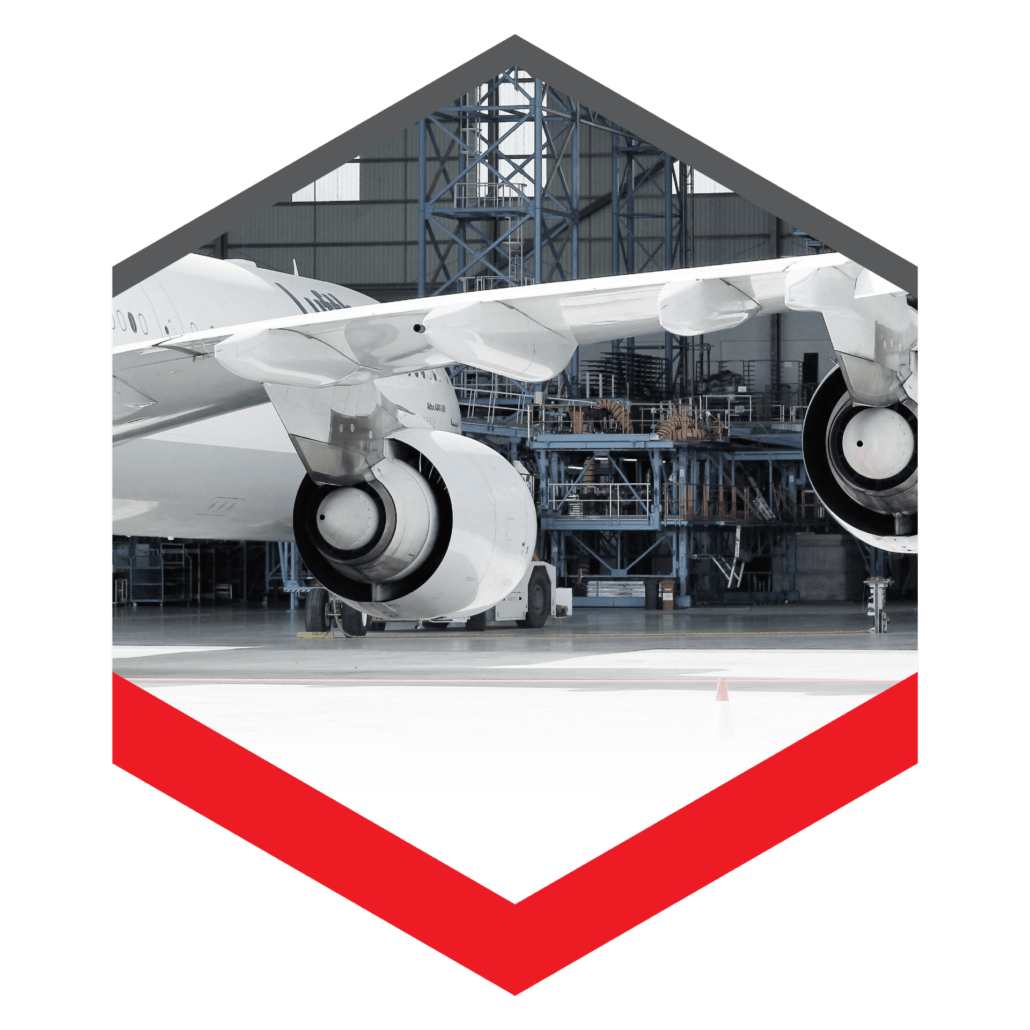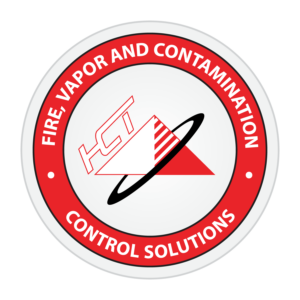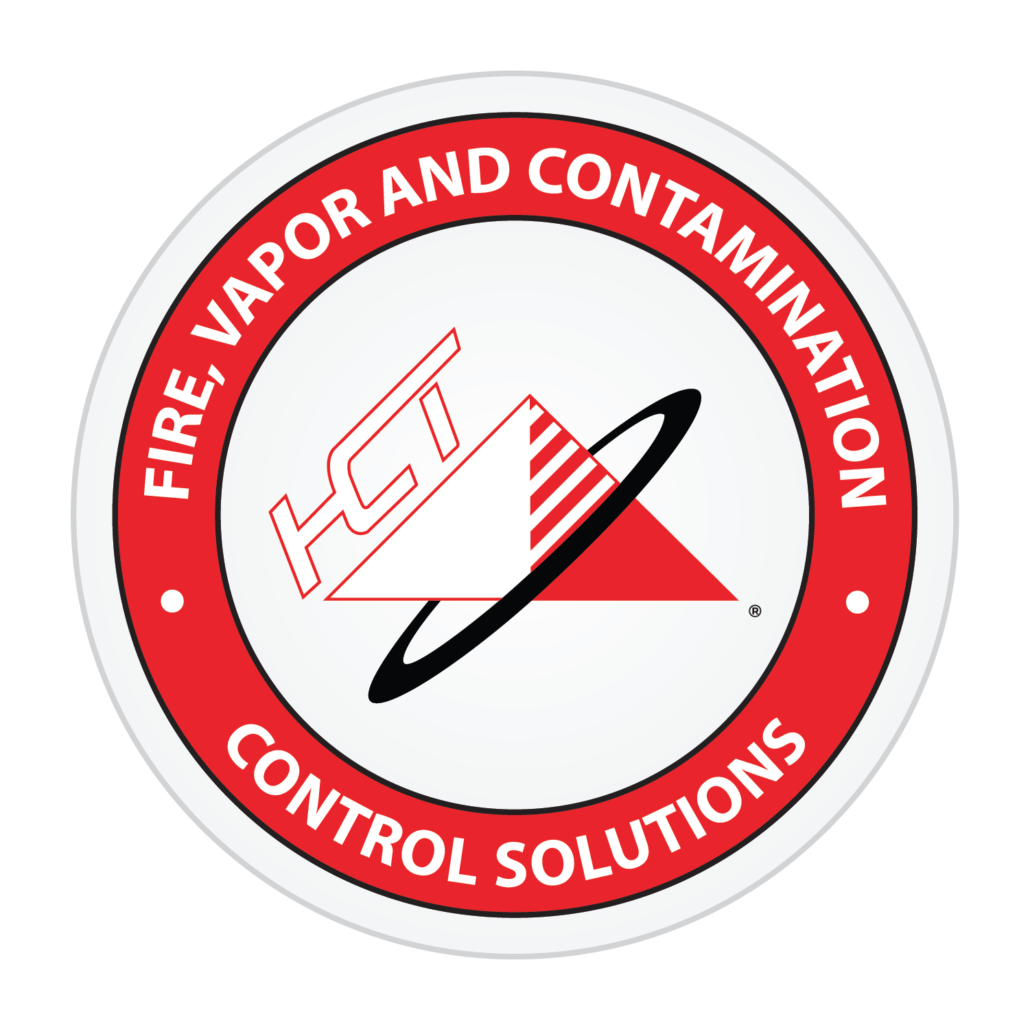Fire Suppression for Aircraft Hangars
Aircraft hangars house some of the most valuable and vulnerable assets, making advanced fire protection systems essential for their safety. Efficient fire suppression is essential for safeguarding the aircraft itself and for protecting the lives of those involved in hangar operations. Industry standards like NFPA 409 guide organizations in implementing effective fire protection strategies.

NFPA 409: Standard on Aircraft Hangars
According to the National Fire Protection Association, the NFPA 409 standard “helps safeguard life and property through requirements for the proper construction and fire protection of aircraft hangars used for aircraft storage, maintenance, or related activities.” By focusing on the specific needs of aircraft hangars, NFPA 409 ensures that these storage and maintenance facilities comply with all building codes and have the most effective fire protection protocols. NFPA 409 has different fire protection requirements based on hangar classification, including the size and construction type of the aircraft.
- Group I: Has an aircraft access door height over 28 feet, a single fire area exceeding 40,000 square feet, or a provision for housing an aircraft with a tail height over 28 feet.
- Group II: Has the following features: an aircraft access door height of less than 28 feet and a single fire area of 40,000 square feet or less.
- Group III: Either has a row hangar with multiple units, an open bay hangar for housing multiple aircraft, or a freestanding unit for a single aircraft. Must feature an aircraft access door height of less than 28 feet and a single fire area of 12,000 square feet or less.
- Group IV: Should have a structure made of a membrane-covered rigid steel frame.
Adherence to NFPA standards empowers hangar operators to implement customized fire protection plans. This allows for the integration of innovative solutions like the F-500 Encapsulator Agent. Our advanced agents offer superior protection by rapidly suppressing fires and reducing the risk of re-ignition, which is crucial in environments with highly flammable materials and expensive assets. NFPA 409 guides individuals toward achieving optimal fire safety.
Types of Fire Hazards in Aircraft Hangars
Aircraft hangars are susceptible to various fire hazards. The combination of high-value aircraft, flammable liquids, electrical systems, and maintenance-related activities creates an environment where fire safety is a top priority. It’s important to be aware of the risks associated with these hazardous operations and know how to implement an effective fire suppression system. These are some of the common fire hazards found in aircraft hangars:
- Fuel Fires: One of the most significant fire hazards is the accidental spillage of aviation fuel. The fuel can quickly ignite if it comes into contact with a heat source or spark. Proper storage of fuel and immediate clean-up around the aircraft’s wings is essential to mitigate this risk.
- Electrical Faults: Hangars often have complex electrical systems for maintenance operations, and any faults or failures can lead to fire outbreaks. Regular inspections and maintenance are necessary to prevent these incidents.
- Maintenance-Related Risks: An unfueled aircraft can even generate sparks. Maintenance and repair tasks in these facilities are a potential ignition source, especially in the presence of flammable materials.

HCT's Solutions
At Hazard Control Technologies, we offer a range of fire suppression solutions tailored for aircraft hangars. Our F-500 Encapsulator Agent is an advanced solution that is extremely effective against various fire types, including Class A, Class B, Class D, and lithium-ion battery fires. The F-500 EA’s ability to rapidly cool and encapsulate fuel makes it an excellent choice for aircraft hangar fire protection, particularly against fuel spills and other flammable liquid fires. We provide state-of-the-art fire suppression technologies that meet and exceed NFPA standards for the aviation industry.
Contact and Consultation
Are you interested in new and unique fire suppression solutions for your aircraft hangar? At HCT, we are proud of our ISO 9001 registration and our extensive experience in fire protection. Our team provides expert advice and customized solutions to meet the unique needs of aircraft hangar operations. We encourage hangar operators to reach out to us for a consultation. By choosing our F-500 Encapsulator Agent, you’re partnering with a leader in fire suppression technology who’s committed to ensuring the safety of your assets and personnel. Request a quote today to learn how the F-500 EA provides the best protection for your hangar facilities.

